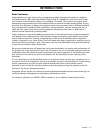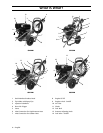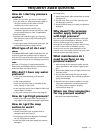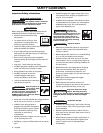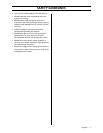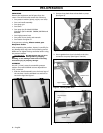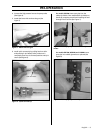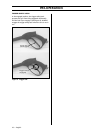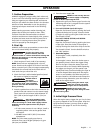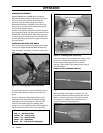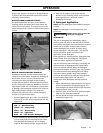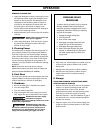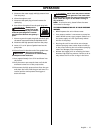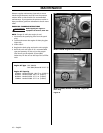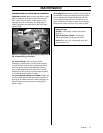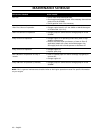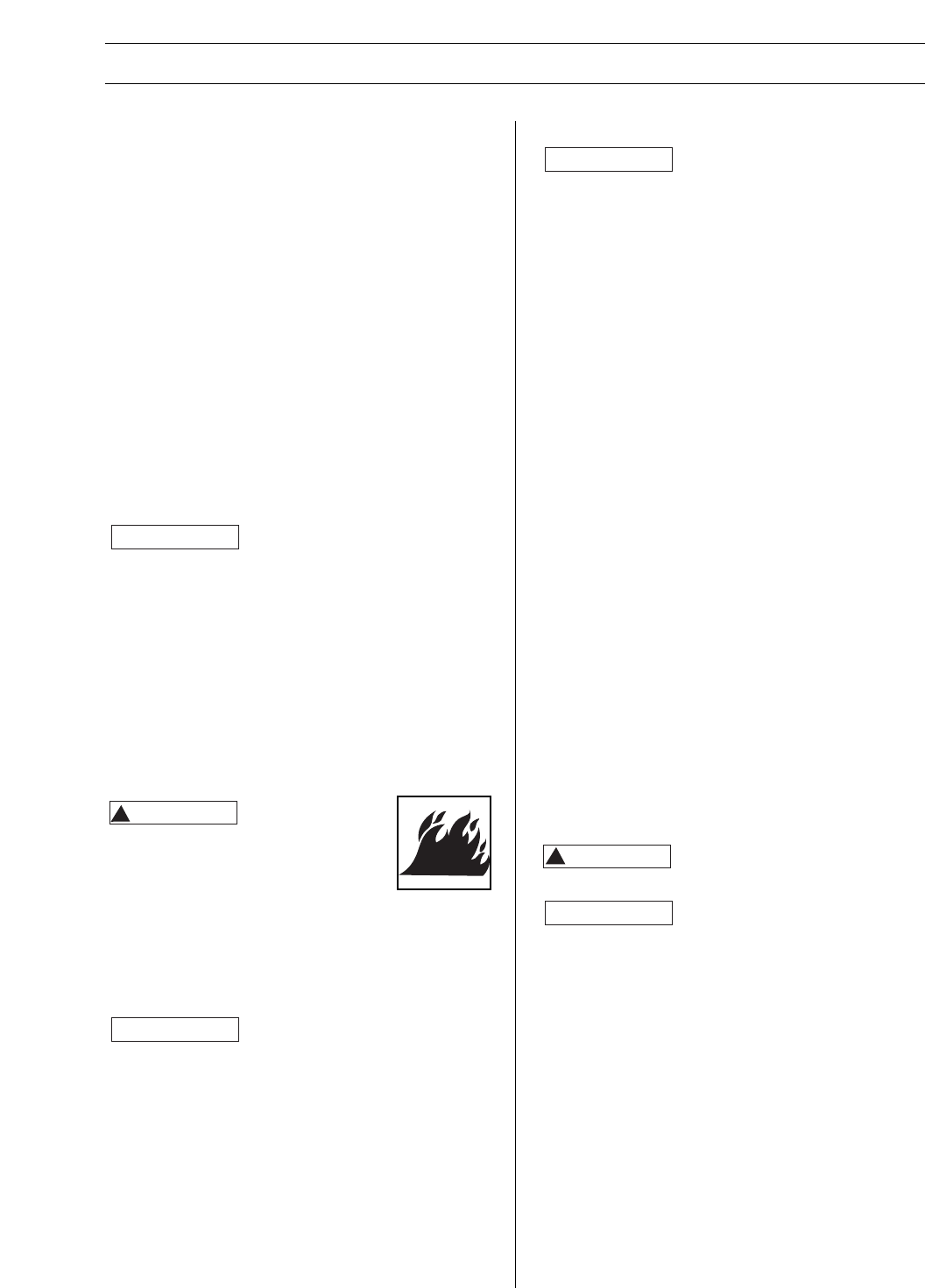
English — 11
OPERATION
1. Surface Preparation
ALWAYS engage the trigger safety latch when unit
is not in use. The following cleaning procedure will
help you organize your cleaning task and ensures
that you will achieve the best results in the shortest
amount of time. Remember to use the spraying /
cleaning techniques mentioned in the following
section.
Before starting a pressure washer cleaning job,
prepare the surface you intend to clean. Clear
furniture from the area and make sure that all
windows and doors are closed tightly. Also, protect
all plants and trees near the cleaning area with a
drop cloth. A covering ensures that your plants
won’t be sprayed by the detergents.
2. Start Up
ALWAYS use this start up procedure to ensure that
the unit is started safely and properly.
If water has frozen in the
pressure washer, thaw the
pressure washer in a warm room before starting. DO
NOT pour hot water on or into the pump; internal
parts will be damaged.
1. Check engine oil levels. Add oil as necessary.
NOTE: Some units are equipped with a low oil
sensor that shuts the engine off if the oil level falls
below a certain level. If the unit stops unexpectedly,
check both the oil and fuel levels. Check the oil
level each time you refuel the unit.
2. Check fuel level. Add unleaded gasoline (rated
86 octane or higher) as required.
DO NOT refuel a
hot engine.
Refueling a hot engine could cause a
fire. Use only fresh, clean unleaded
gasoline. Close the fuel shutoff valve
during refueling.
3. Attach a garden hose to the inlet connection for
garden hose and connect it to the water supply.
Use a hose with a minimum inside diameter of
5/8” (.016 m) and a length of 50 ft. (15 m) or
less.
Some local plumbing codes
require backflow prevention
when connecting to a fresh water supply. Install a
backflow preventer upstream from the pump if
necessary.
a. If inlet water pressure is over 100 psi, install a
regulating water valve at the garden hose
connection.
b. DO NOT exceed 100˚ F (38˚ C) inlet water
temperature.
NOTE: The inlet water supply must have a
minimum flow rate of 8 gpm (30 lpm) or 5 gpm
(191 lpm) on 5525PW.
NOTICE
!
WARNING
NOTICE
4. Turn the water supply ON.
NEVER run the unit dry. Be sure
the water supply is completely
turned on before operating the unit.
5. Squeeze the gun until water sprays from the tip
indicating that all air is purged from the system.
Set the trigger safety latch.
6. On model 5525PW: Honda GC Engine:
Open the fuel shutoff valve by turning the knob
counterclockwise until it stops. Close the choke
(if engine is cold) by pulling the choke lever out.
The throttle is fixed.
On model 1340PW, 6027PW, and 9032PW:
Honda GX engine:
Open the fuel shutoff valve by pushing the lever
to the right. Close the choke (if the engine is
cold) by moving the choke lever fully to the left.
The throttle is fixed. Turn the On/Off switch to
the "ON" position.
7. Start the engine:
If the engine is cold, completely close the
engine choke.
If the engine is warm, leave the choke open or
just partially closed. Unlock the trigger safety
latch on the gun. Grasp the starter rope and
brace one foot on the chassis. While squeezing
the trigger on the gun, pull the starter rope
rapidly and firmly. Continue holding the rope as
it returns. Repeat these steps until the engine
starts. In cool weather, the choke may have to
be kept closed for 10 to 30 seconds to keep the
engine running. Otherwise, open the choke as
soon as the engine starts.
When pulling the starter rope,
make sure to keep your hand
and arm clear of the engine and cart components.
NEVER let the starter rope
return by itself. Doing so could
jam the recoil system.
3. Initial High Pressure Rinse
After the engine starts, trigger the gun 3 to 5 times
to get any trapped air out of the system. After the
spray becomes constant, you may need to adjust
the pressure (see pages 13 and 14 for cleaning
techniques).
NOTICE
!
CAUTION
NOTICE



